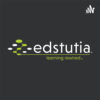The recent report, “Rising Above the Gathering Storm: Energizing and Employing America for a Brighter Economic Future,” commissioned as a congressional study by Sen. Lamar Alexander and Sen. Jeff Bingaman concludes that the United States is losing its position as a world leader in the global economy. This is largely because of the emergence of a flat world. As Thomas Friedman points out in his book “The World Is Flat,” advanced knowledge is a mouse click away, and the traditional advantages held by the United States, particularly in areas of science and technology, are eroding.
Consider the following statistics outlined in the report, “Rising Above the Gathering Storm:”
The international marketplace quickly is changing as innovation becomes faster, cheaper, more global and increasingly multidisciplinary.
So, how does America compete in this global economy? As stated in Friedman’s book, every enterprise must consider the international implications of a flat world. This is particularly crucial for organizations that employ knowledge-intensive professionals in such fields as science, technology, engineering, mathematics, computing and medicine. Consider just one statistic found in the congressional report: “For the cost of one chemist or one engineer in the United States, a company can hire five chemists in China or 11 engineers in India.”
So, the question looming for chief learning officers and heads of technical education is this: Are we doing enough to ensure our technical talent continues to innovate and create?
Alcatel-Lucent is taking the lead to address this issue. The company has identified the area of IP Multimedia Subsystem (IMS) as the next-generation required skill set for its technical service engineers. IMS, the convergence of voice, data and video, is “the” skill set service engineers need as they support next-generation solution platforms.
Dan Simms, Alcatel-Lucent director of service readiness, has developed a partnership with University of Illinois Business & Industry Services (BIS) to customize a certificate program called “Convergence Technologies Professional” (CTP) that certifies engineers in a foundational understanding of these converging technologies.
Simms is careful to point out that he is not employed in the training/learning organization but reports through to the head of Alcatel-Lucent’s worldwide service organization. But he gives CLOs some advice about creating alliances between the technical areas of their firms and learning and development:
Jeanne C. Meister is an author and independent learning consultant. She can be reached at editor@clomedia.com.
















